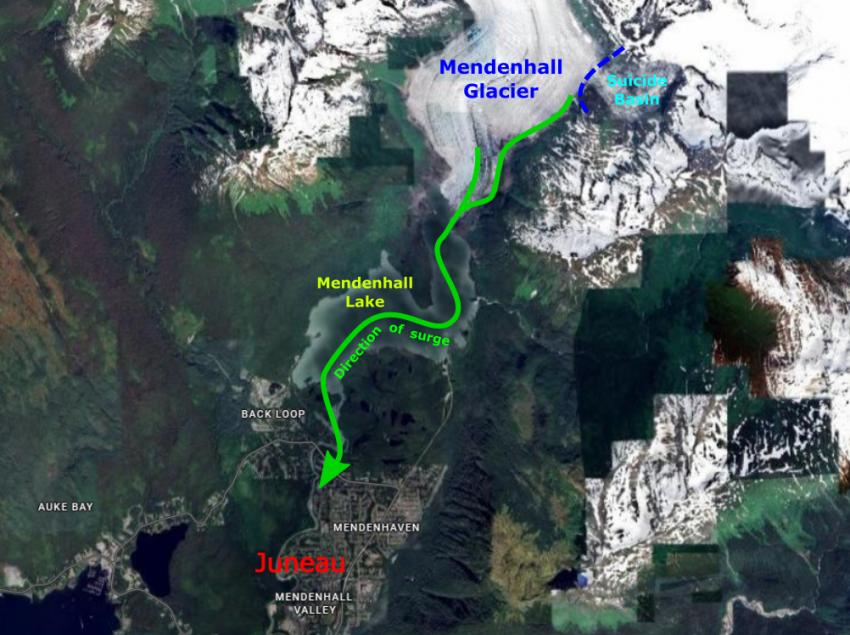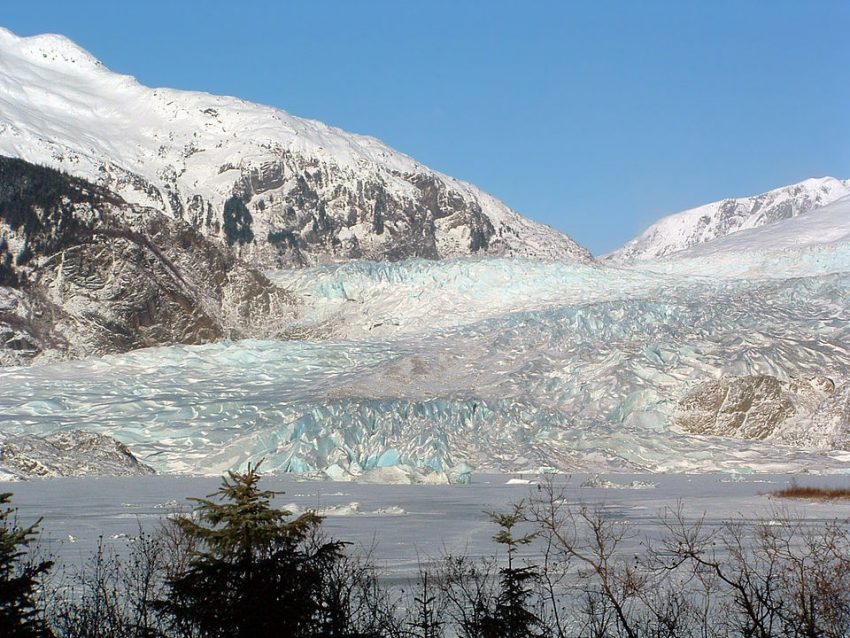The Mendenhall River rose dramatically overnight into Wednesday morning in the Alaskan state capital of Juneau. The river crested at 16.65 feet (5.1 m) late Wednesday morning, a new record. Power was intentionally cut to the area and evacuations were ordered. However, emergency barriers put up in recent days anticipating the flood prevented significant damage to most homes and businesses. The flooding is due to a phenomenon known as a “glacial outburst”, an annual surge of water that has become increasingly dangerous thanks to global warming.

The Mendenhall Glacier lies about 12 miles (19 km) upstream of Juneau. This glacier has been retreating steadily due to climate change with about 1.75 miles (2.8 km) lost since 1929. The resulting meltwater feeds into Mendenhall Lake and eventually Mendenhall River, which runs through Juneau. It also fills the adjacent Suicide Basin, held back by a temporary ice dam. As temperatures rise into Augusta and the Basin fills up, the ice dam eventually breaks, sending a flooding surge down into the Alaskan state capital. Global warming has led to higher and higher river surges the past three years. The outburst surge in August of 2024 flooded basements and damaged some roads. Fortunately, officials were able to anticipate the surge this season and prevent significant flooding damage. Lead photo courtesy Wikipedia user Ringbang
